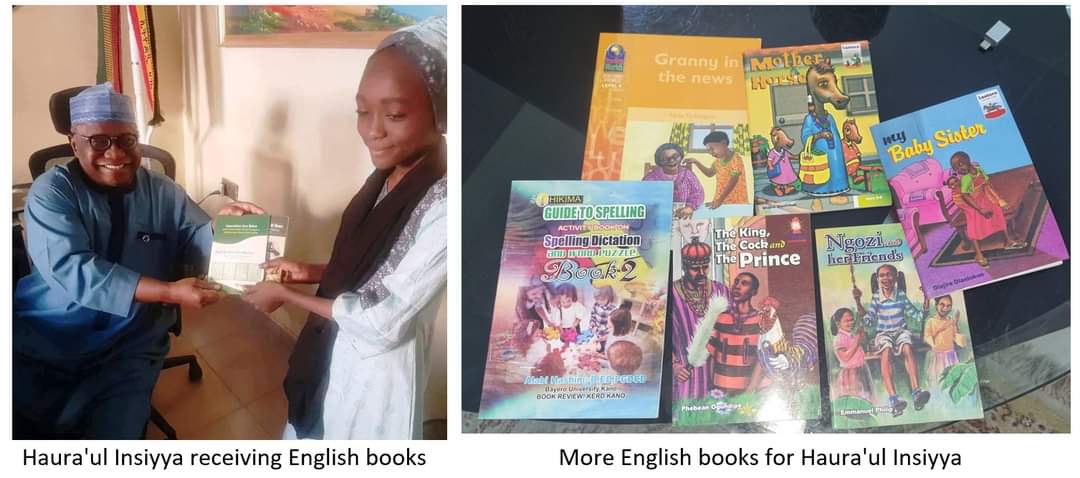“Can I Please Have Some English Books to Read?”

Culled from Prof. Abdullahi Uba Adamu
Her name was Haura'ul Insiyya. A child in primary 5 in Kano. Maybe ten years old or so. She just came to the forecourt of our Visually Ethnographic Networks office in Ɗandago, Sabon Titi Kano, and stopped, very shy and staring at the office which, as usual, was full of people. Someone noted her, and asked what she wanted. Her replying was as surprising for an inner-city child in the heart of Kano. as it was pleasing,
Although her grandparents live in the area, she does not, and only comes on weekends to visit them. She noted whenever she visited, the friends she made often come to our office building and pilfer books that have been damaged. Visually Ethnographic Networks shares the same office building with Gidan Dabino Publishers. They usually keep the stock of books they printed on the ground floor before dispatch. They also keep damaged copies (torn cover, missing pages, faint inks, etc.) of the books, which were sold as pulp.
Apparently local kids often come and pilfer these damaged books. She felt it was wrong to do that without asking. So she decided to come to the front office (where my office is located) and directly ask for books. Everyone in the office was delighted, and the person who challenged her presence told her we only have English language books in this particular office, not Hausa (which the other kids pilfer). She responded that she would even prefer the English books to improve her English.
The only books were had were my two inaugural lectures which are just too heavy-duty for a primary school pupil. Nevertheless, we gave her a copy each -- making her the first primary school pupil in Nigeria to own copies of two professorial inaugural lectures! She was happy, but her shyness almost prevented her from being photographed. She left, after being photographed by Hamisu Lamiɗo Iyantama who was in the office when the incident happened.
Her moral code (not wanting to pilfer), as well as her desire to learn English, and her courage in boldly asking all made me source for books for her level. We bought six of them for her, but by then, she had gone back home. We decided to keep the books in the office and give them to her next week, with additional school materials. Such courage! Such moral code! And such upbringing in these trying times! She is truly a shining star.
The sad aspect of this illuminating incidence is that there are no Hausa language books similar to those we bought for her – bright, colorful, cheerful and attractive enough to encourage reading culture among children in indigenous languages.

